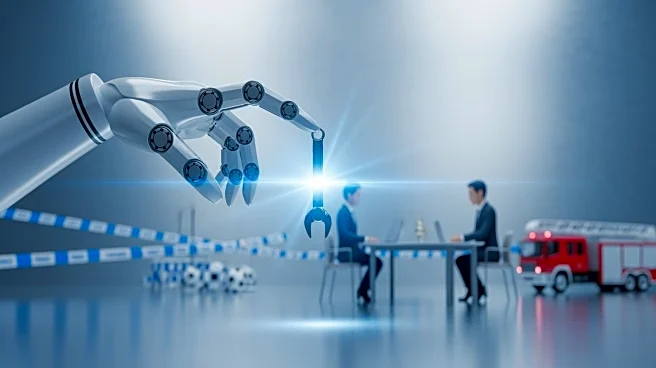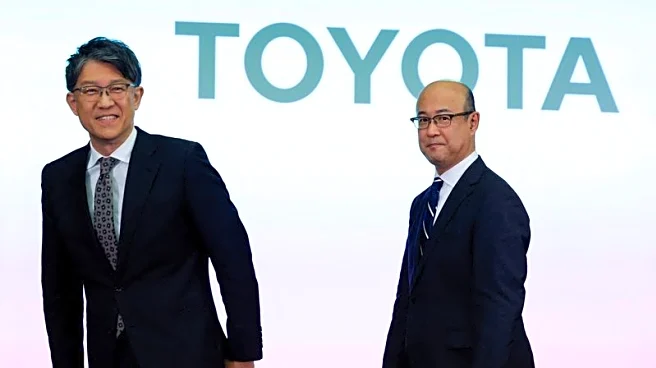What's Happening?
Amazon's stock has seen an uptick following the resolution of an AWS outage that affected numerous services. The outage, originating from a domain name system issue at Amazon's Virginia data center, lasted
over 15 hours. Concurrently, Amazon has announced plans to replace 600,000 workers with AI-powered robots by 2033, aiming to automate 75% of its operations. This move is part of a broader strategy to enhance efficiency and reduce reliance on human labor. The company anticipates cutting 160,000 U.S. roles by 2027, with significant reductions in its human resources staff. Amazon is investing heavily in AI infrastructure, allocating over $100 billion this year to build advanced AI data centers.
Why It's Important?
Amazon's shift towards automation and AI-driven operations could significantly impact the U.S. labor market, particularly in sectors reliant on manual and routine tasks. The replacement of human workers with robots may lead to job losses, affecting economic stability for many families. However, it also represents a substantial investment in technology, potentially driving innovation and efficiency in e-commerce. The move could set a precedent for other companies, influencing industry standards and labor practices. While Amazon's stock shows a slight increase, the long-term effects on its market performance and public perception remain uncertain.
What's Next?
Amazon's restructuring and automation plans may prompt reactions from labor unions, policymakers, and industry leaders concerned about job displacement and economic inequality. The company may face scrutiny over its labor practices and the ethical implications of widespread automation. As Amazon continues to invest in AI, it may explore new business opportunities and partnerships to leverage its technological advancements. Stakeholders will likely monitor Amazon's progress and its impact on the broader economy, potentially influencing future regulatory measures and labor policies.
Beyond the Headlines
The ethical considerations of replacing human workers with robots raise questions about the future of work and the role of technology in society. Amazon's strategy may contribute to a broader debate on the balance between technological advancement and social responsibility. The company's actions could influence cultural perceptions of automation and AI, shaping public discourse on the value of human labor versus machine efficiency.











